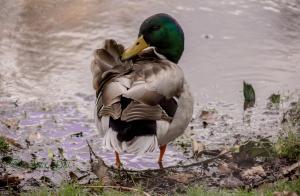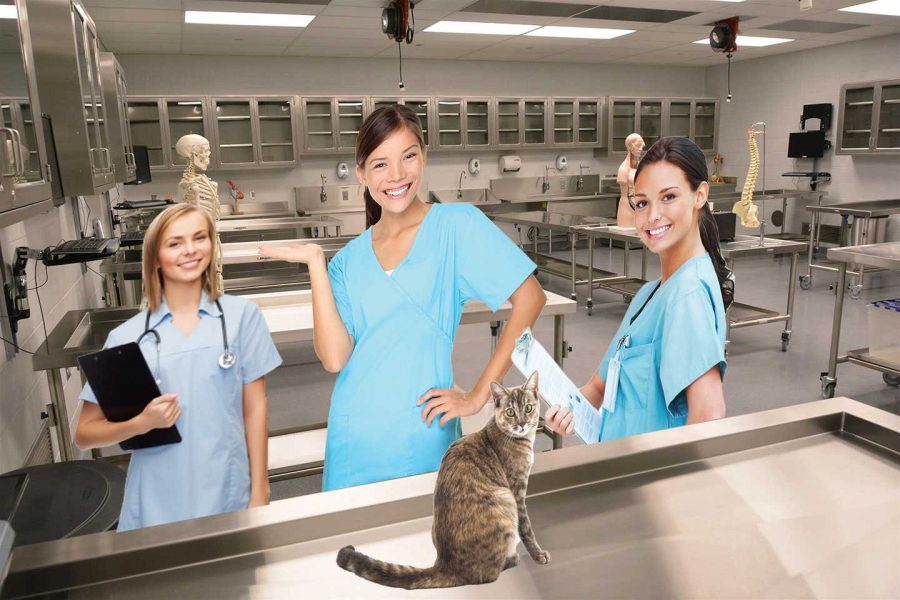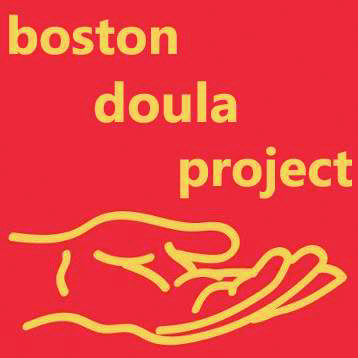For sympathetic bystanders with no wildlife training who want to help
By Lisa Nault
Staff Writer
Spring is finally here and the weather is starting to behave properly. With flowers blooming and thicker jackets being packed away till next winter, it is also the time for wildlife to come out into the open.
Soon you will begin to hear the chirping of baby birds and see baby rabbits hopping around the quad. However, spring also means that there will be more injured and orphaned creatures around.
During this past winter, many Simmons students were concerned about a duck who appeared lost, alone, and probably cold. They wondered what they should do to help the poor little fellow because they felt guilty doing nothing.
Hopefully this article will help answer the questions that many people may have concerning what happens when they find a wild animal.
For starters, it can be very harmful to move a wild animal. This may seem obvious, but when you see a small baby bird on the ground you still feel compelled to pick it up and give it some sort of shelter. If the animal is not obviously injured or truly orphaned, it should be left undisturbed.

According to the official website of the Executive Office of Energy and Environmental Affairs, there are several repercussions to taking wildlife out of their habitats. The animal may try to return to its original location and in the process it can get killed on its journey home. If a rabbit is moved from its home in a park and then tries to get back there a car could hit it.
The creature that has this problem the most is a turtle, which makes sense since they move so slowly.
One of the biggest problems with relocating animals is the fact that they can lose their fear of humans. That means that when they are released back into the wild they can look to people for help.
They will then lose their ability to survive on their own and have a greater risk of dying. Also, if they lose their fear of humans then they can become a problem for somebody.
For example, if a person took care of a baby raccoon, which is a bad idea anyway, and released it into the wild, then that raccoon will not think twice about getting close to where another person lives and going through their trash.
The New England Wildlife Center, located in South Weymouth, Massachusetts, is an animal hospital that specializes in exotic creatures. It treats wildlife, educates the general public, and contains a veterinary clinic for odd pets.
On their website, they explain what people should do if they find an animal that is clearly injured. The first advice they give is to bring the creature to a rehabilitator or veterinarian who can provide the best care. The center warns against mistaking a young animal that is learning to be on its own with an injured adult.
For orphaned animals, the center lists what somebody can do to help reunite a baby with its mother. They discourage anyone who is untrained to attempt to hand-raise an orphaned wild animal. It can harm the creature more then help it, and it is also illegal to hand-raise wildlife without a wildlife rehabilitation license.
There are professional resources available to people, including the New England Wildlife Center (781-682-4878 ext 113), and the MassWildlife webpage has a list of wildlife rehabilitators located around the state.
If you find a baby rabbit that appears orphaned, check out the House Rabbit Society’s information page on the best way to deal with them.
If you find a raccoon, call a professional; do not handle it by yourself. Although the raccoon may not carry rabies, several do, and erring on the side of caution is a better approach.
The World Bird Sanctuary recommends that if you find a baby bird, determine if its eyes are open, whether or not it is injured, and if it can move away from you. If it seems not to be injured, its eyes are open, and it is able to move, leave it alone.
If you are concerned about any wildlife you find there is more information online and plenty of resources available to the general public. Just remember to be cautious, and do not try to move an animal without knowing what you should do.














